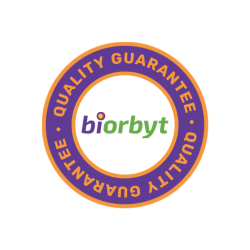You have no items in your shopping cart.
Cart summary
Item 1 of 2
Item 1 of 2
Human PCSK9 (D374Y) Protein
Catalog Number: orb257745
| Catalog Number | orb257745 |
|---|---|
| Category | Proteins |
| Description | Proprotein convertase subtilisin/kexin type 9 (PCSK9) is also known as NARC1 (neural apoptosis regulated convertase), is a newly identified subtilase belonging to the peptidase S8 subfamily. Mouse PCSK9 is synthesized as a soluble zymogen, and undergoes autocatalytic intramolecular processing in the endoplasmic reticulum, resulting in the cleavage of its propeptide that remains associated with the secreted active enzyme with a broad alkaline pH optimum. This protein plays a major regulatory role in cholesterol homeostasis. PCSK9 binds to the epidermal growth factor-like repeat A (EGF-A) domain of the low-density lipoprotein receptor (LDLR), inducing LDLR degradation. PCSK9 may also have a role in the differentiation of cortical neurons. Mutations in this gene have been associated with a rare form of autosomal dominant familial hypercholesterolemia (HCHOLA3). |
| Reactivity | Human |
| Tag | C-6×His |
| Form/Appearance | Powder |
| Purity | 90% |
| Conjugation | Unconjugated |
| MW | 13.8 kDa and 58.2 kDa |
| Target | PCSK9 |
| Protein Sequence | AAI66619.1 (D374Y) |
| Source | Human PCSK9 (D374Y), His Tag (orb257745) is expressed from human 293 cells (HEK293). It contains AA Gln 31 - Gln 692 (Accession # Q8NBP7-1 (D374Y)). |
| Expression System | HEK293 |
| Expression Region | Gln 31 - Gln 692 |
| Endotoxins | 1.0 EU per μg |
| NCBI | D374, AAI66619.1 |
| Storage | -20℃ |
| Buffer/Preservatives | PBS, pH7.4 |
| Alternative names | PCSK9,FH3,HCHOLA3,LDLCQ1,NARC1,PC9 Read more... |
| Note | For research use only |
| Application notes | This protein carries a polyhistidine tag at the C-terminus. This protein undergoes autocatalytic cleavage to release the pro-peptide and mature chain. The pro-peptide and mature chain are associated through non‑covalent interactions and with a calculated MW of 13.8 kDa and 58.2 kDa respectively. The protein migrates as 17 kDa and 66 kDa under reducing (R) condition (SDS-PAGE) due to glycosylation. The D374Y mutation results in higher affinity of PCSK9 for LDLR. |
| Expiration Date | 6 months from date of receipt. |

SDS-PAGE analysis of Human PCSK9 protein

Line graph illustrates about the sensitivity range of Human PCSK9 protein using different concentrations
PCSK9 Protein, Human, Recombinant (D374Y, mFc), Biotinylated [orb1954572]
98.00%
Approxiamtely 97.5 kDa
100 μg, 20 μgPCSK9 Protein, Human, Recombinant (D374Y, mFc) [orb1954628]
98.00%
Approxiamtely 97.5 kDa
500 μg, 50 μgPCSK9 Protein, Human, Recombinant (D374Y & V474I & G670E, His), Biotinylated [orb1954683]
98.00%
Approxiamtely 72.6 kDa
100 μg, 20 μgPCSK9 Protein, Human, Recombinant (D374Y, His) [orb1954815]
98.00%
Approxiamtely 72.5 kDa
500 μg, 200 μg, 100 μg, 50 μgPCSK9 Protein, Human, Recombinant (D374Y & V474I & G670E, His) [orb1959154]
98.60%
Approxiamtely 72.6 kDa
500 μg, 200 μg, 100 μg, 50 μg
Submit a review
Filter by Rating
- 5 stars
- 4 stars
- 3 stars
- 2 stars
- 1 stars

